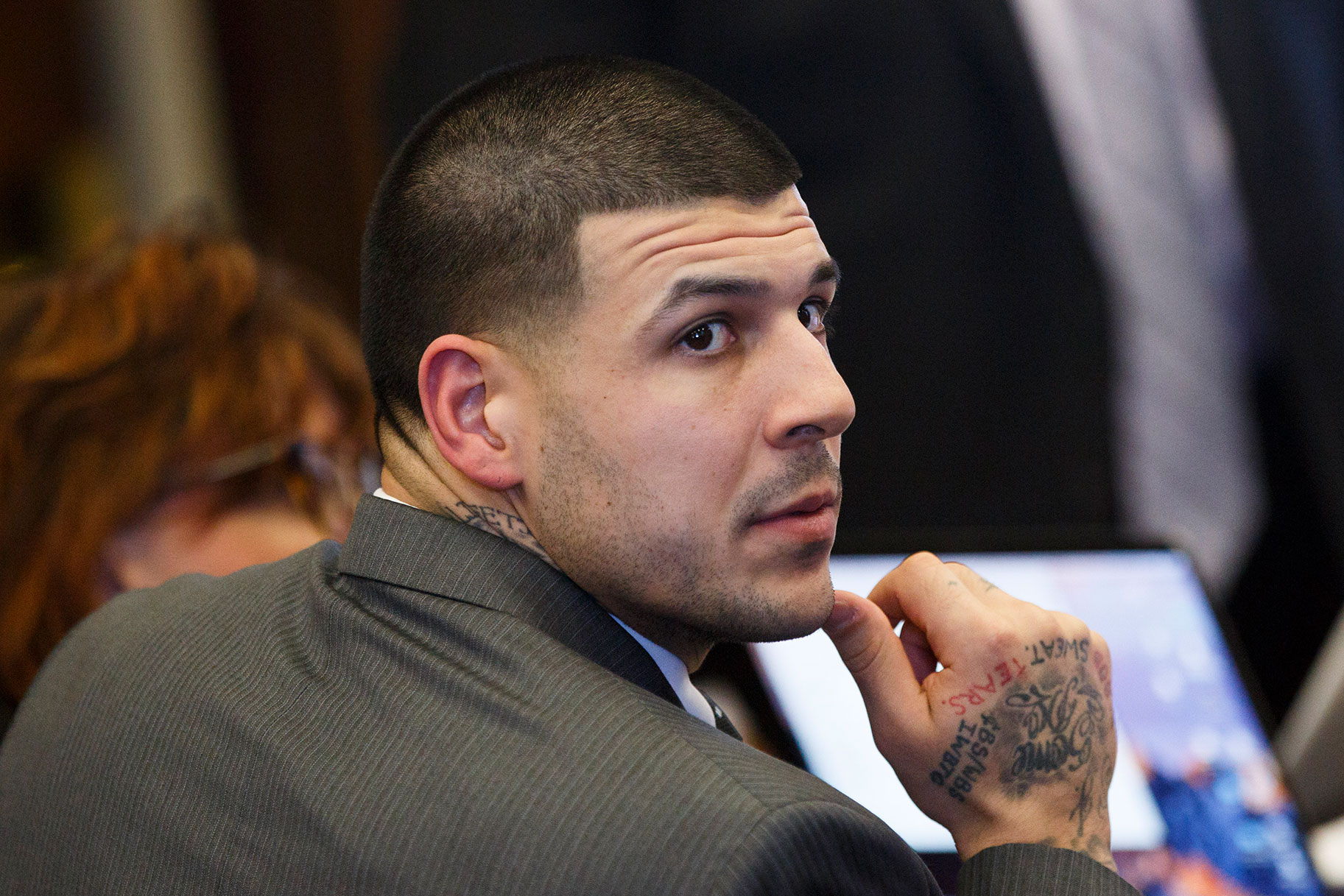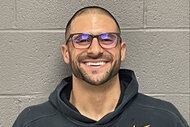Create a free profile to get unlimited access to exclusive videos, breaking news, sweepstakes, and more!
Why Was Convicted Killer Aaron Hernandez Considered Innocent After Suicide? Abatement, Explained
Aaron Hernandez’s suicide made him, for a time, an innocent man.

Aaron Hernandez may have been convicted of the 2013 murder of Odin Lloyd before he died, but when he took his own life in 2017, he was, in the eyes of the law, technically innocent — for a little while, at least.
Following a tumultuous trial that saw Hernandez’s loved ones dragged onto the stand and into their own cases, the former tight end for the New England Patriots was found guilty in 2015 of first-degree murder (in addition to unlawful possession of a firearm and unlawful possession of ammunition) and sentenced to life in prison for shooting Lloyd to death, according to ABC News.
His time in police custody came to an end on April 19, 2017, when the 27-year-old former athlete was found dead of an apparent suicide. Prison officials told NPR that Hernandez had been found hanging from a bed sheet that was attached to the window of his cell; although corrections officers tried to save his life, he was pronounced dead at a nearby hospital an hour later.
With Hernandez’s death, his legal slate was virtually wiped clean, due to a little-known rule. Although mere days before his death, he’d been acquitted of the 2012 double murder of which he had also been charged, Hernandez continued to serve out a life sentence. However, he’d been in the process of appealing his conviction of the Lloyd murder before he died, and in the weeks following his death, his legal team filed to have his conviction thrown out, citing a little-known legal loophole known as “abatement ab initio.”
The principle, which was birthed in the 19th century, dictates that when a defendant dies before his process of appeal is complete, then the slate is essentially wiped clean, according to a publication by the National Crime Victim Law Institute. For the defendant in question, “all criminal proceedings initiated against [him or her] from indictment through conviction” are erased; “ab initio,” which means “from the beginning,” refers to that process, according to the Institute.
While the rule is an old one, a Massachusetts judge recognized the legal validity of the argument and vacated Hernandez’s conviction less than a month later, USA TODAY reports. Judge Susan Garsh said in her ruling that the court “had no choice” but to do so due to a longstanding precedent.
Lloyd’s mother, Ursula Ward, criticized the decision, commenting, “In our book, he’s guilty, and he’s going to always be guilty,” USA Today reported.
Prosecutors criticized the ruling as well, including Bristol District Attorney Thomas M. Quinn, who persisted in calling Hernandez a murderer, according to Sports Illustrated.
“He died a guilty man and a convicted murderer,” he said. “This fact is indisputable. You can’t just snap your fingers and have that go away.”
Some have speculated that Hernandez knew he could possibly be vindicated in death, with prosecutors, who vowed early on to fight the decision, calling his suicide “calculated,” according to the Associated Press.
They were ultimately successful: The Massachusetts’ Supreme Judicial Court ruled unanimously to reinstate Hernandez’s conviction in March 2019, writing that abatement ab initio is “outdated and no longer consonant with the circumstances of contemporary life, if, in fact, it ever was,” NBC Boston reports. The court decided that Hernandez’s conviction was neither affirmed nor reversed, since the appeal was never heard; additionally, in another landmark decision, the court also ruled that it would not consider that defense in the future.
While Hernandez’s legal team said again that they’d be fighting the decision, prosecutors spoke favorably of the court’s ruling.
“We are pleased justice is served in this case, the antiquated practice of vacating a valid conviction is being eliminated and the victim’s family can get the closure they deserve,” Quinn said on Twitter.
Hernandez’s attorneys made good on their promise in April 2019 by asking the court to reverse their decision to reinstate the conviction, according to the Associated Press. Their argument is that the court’s decision on abatement should not refer to past cases, like Hernandez’s, but only future cases.
To learn more about the case, watch “Aaron Hernandez Uncovered” on Oxygen.

























